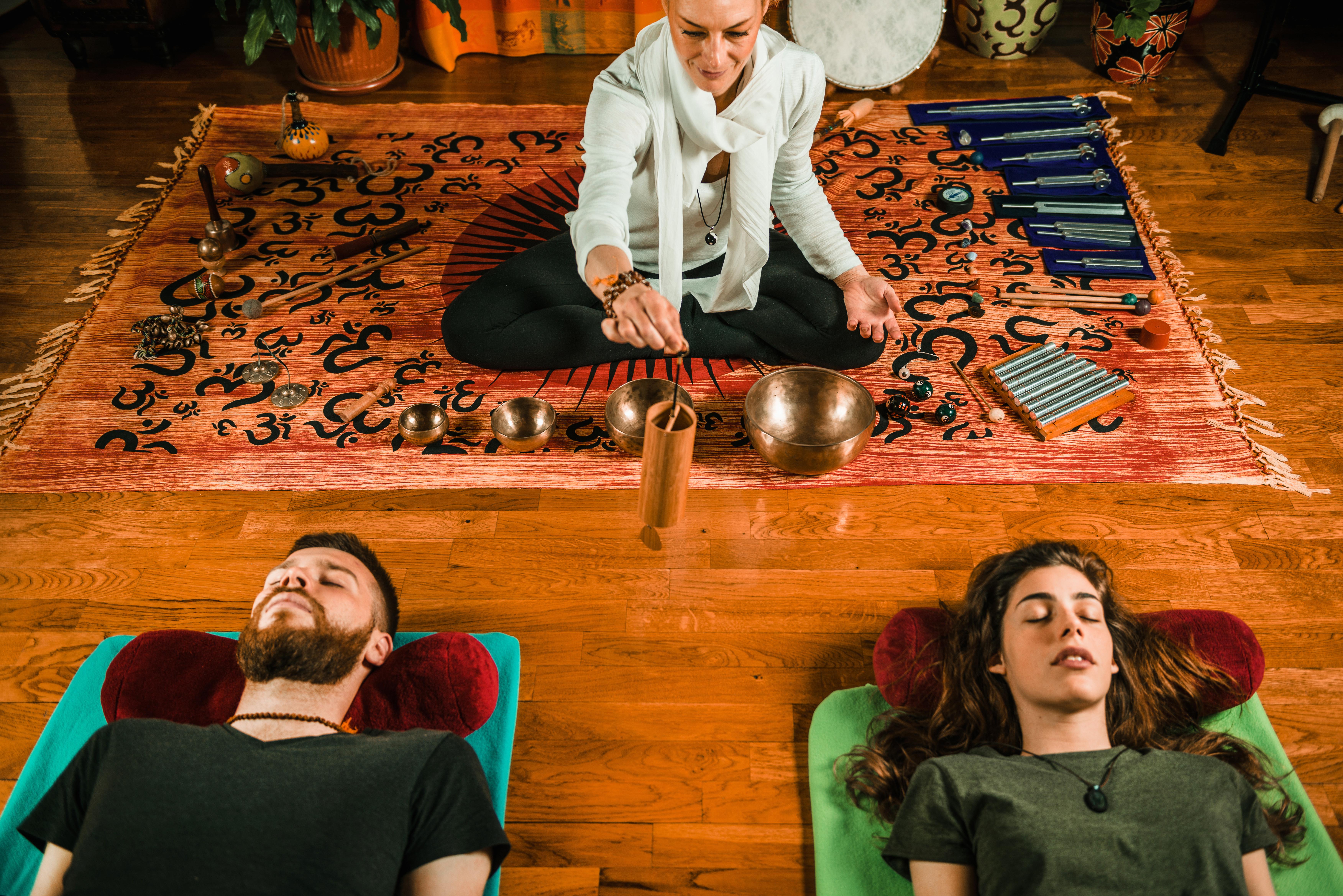JASON SILVA: When fear or panic takes hold of the mind, what is happening is that we're overdetermining the present. So we're like overreading and overdetermining what's happening right now. And then immediately conjuring up a future that becomes identified with doom, death, or annihilation, and we can feel it like a fist in the stomach. This is the essence of what a panic attack is. A panic attack misreads what's happening now, and sees it as impending and immediate and imminent danger like right now, fight or flight so that I don't die. And then reacts accordingly. But typically in a moment of panic you're not actually in imminent danger just like most people who are sitting at home during this time are not in imminent danger. So 99.9 percent of the population is not infected and even those that are infected, 99 percent are not in mortal danger, right?
Those are the facts. But the sense of anxiety from the overexposure to the news, from the drastic mitigation measures that are forcing people to be essentially in house arrest and additionally the fact that it's very difficult to lose ourselves in the usual trivialities and distractions that we so often lose ourselves in whether it's work or entertainment or just moving around and distracting ourselves. What we are forced instead to contend with is, even those of us that are not existentialists are forced into this existential meditation of like can we sit alone in our room with our thoughts, with our fears, with that sense of temporal dislocation, with this imposition of uncertainty and how do we deal with this? And that's an immense challenge first and foremost because being in a state of permanent anxiety and all the cortisol and all the biochemistry that follows from being in that permanently anxious state, that actually depletes our immune system. So it actually makes us less resilient against the virus.
The reason that we normally are such fans of travel or art and beauty, and music, and certain kinds of drugs is that these things block all signals forwards and backwards in the brain. Now when you block all signals forwards and backwards in the brain, the comparing with the past and trying to predict the future, you're hurled into and I quote "the flow" – another word I love. The flow of the present.
And when you're in the flow of the present well, anything that shows up in your field is going to be more engaging because you're not going to dismiss it and immediately leapfrog to the conclusion. You're actually going to engage with it. If you're able to tap into a mindful state open up a book that you haven't read in a while, watch a film you haven't seen in years or a film you've never seen perhaps, and for sort of steer awareness or focus awareness to it with a kind of presence that is not constantly trying to future forecast. So you drop the thread of time, you move from what the Greeks call Cronus which is like mechanized cognition to Kyrus which is like mythopoetic time or poetic time. Time that is free from the clock and that is a mindful state. That is a mythopoetic state.
And that is the only state that provides relief and a kind of grace from which we can drop out anxiety finally and completely. And how people do it? Well there's many ways of practicing mindfulness. Yoga, exercise, silent meditations, active meditations, listening to a podcast, breathing exercises. If you're in a state with legal cannabis by all means it's one of the best ways of doing so. Yeah, it definitely has a role to play during this time for sure.






